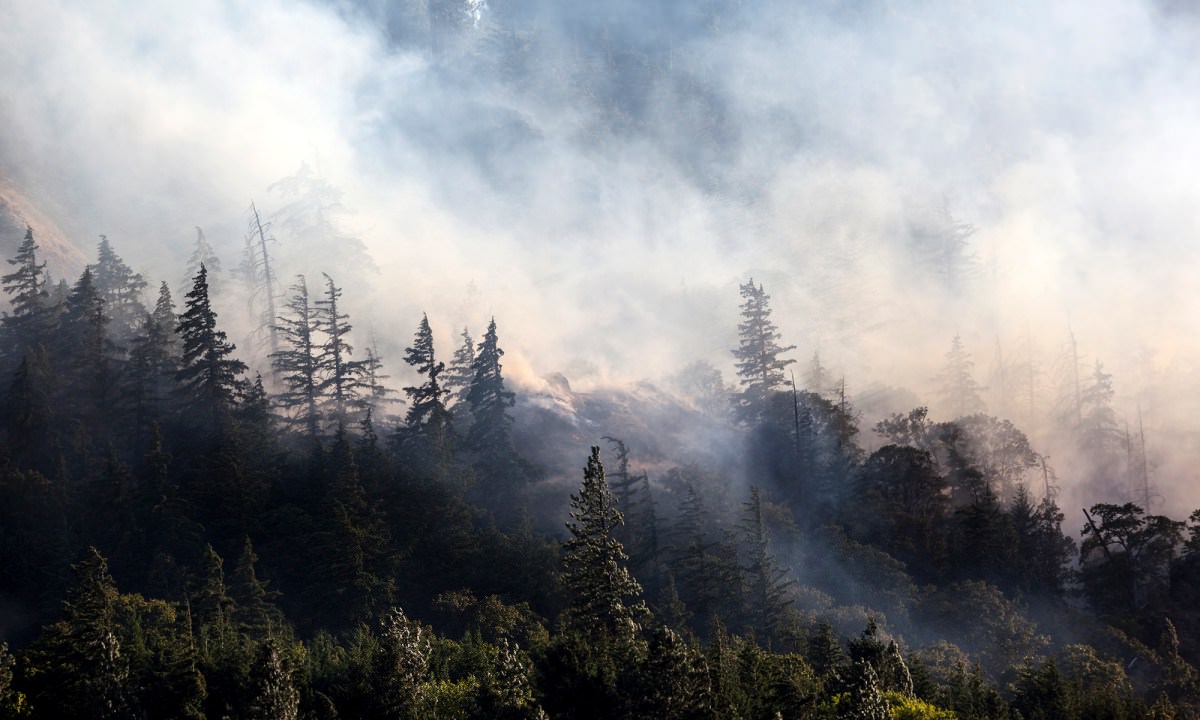My love affair with Oregon began in the Columbia Gorge; the waterfalls, lush greenery, and high cliffs. And now it’s burning.
As I write these words, a firecracker tossed into Eagle Creek by a teenager has turned the lush Gorge into an inferno twice the size of Manhattan Island. People have been evacuated from nearby Cascade Locks, a few homes have burned, and the fire has entered the Bull Run Watershed, the source of Portland’s water supply. Oregonians are in shock and mourning. The need to take action is visceral. Here’s what you can do.
What You Can Do Now
Give Money
You can’t fight a forest fire yourself, though we all want to. The best thing you can do while the crisis ranges is to open your wallet. Money will help shelter those who have been displaced by the fire and the small local fire and rescue departments that have been faced with both battling fire and rescuing stranded hikers.
Please contribute to the Cascades Region of the American Red Cross and the Hood River Search and Rescue who are on the front lines. Please don’t try to donate materials or time, unless it’s something they specifically ask for. Responding to these calls takes time away from critical fire management and emergency shelter operations.
Offer the Spare Bedroom
If you live nearby, offer the spare bedroom or couch to people who have been displaced by the fire. Shelters are currently operating in Gresham and Stevenson, WA, but this may change as the fire evolves. Get on social media and see if anyone needs a place to crash, especially if they have pets that may be difficult to house at shelters.
Be Careful
It may sound redundant, but be careful in the outdoors. The fact that a few firecrackers and a reckless kid could set off such a massive conflagration should make all of us careful with campfires, cigarettes, and general carelessness.
Write Your Congressman
The Gorge wildfire is too big to fight with local resources alone. As of this moment, the federal government hasn’t provided any relief funds. Write your Congressperson and Senators and urge them to keep pressure on to allocate funding for both the immediate firefighting and restoration costs.

What You Can Keep Doing
For the next several weeks or longer, the focus will be on getting the fire under control. But that’s the beginning, not the end. The reality is that most people are eager to help during a crisis, but then quickly forget when the news stories subside and the smoke clears. Don’t be that person.
Keep Giving Money
The Gorge will need allies more than ever in the months and years to come. There will be a ton of work to do rebuilding trails, restoring health to streams and forests, and more. We don’t know exactly what will be needed and when, but we know that we’ll need a lot of it. Become a monthly donor—not a one-time contributor—to Friends of the Columbia Gorge, the only group focused entirely on keeping the Gorge healthy.
Help Restore the Gorge
Your help will be needed as well as your cash. It will involve getting on the ground to assess damage, restoring trails and streams, sending emails to officials to support restoration funding, and more. To add your name to the list of volunteers once the fire is out, email Friends of the Columbia Gorge Outreach Manager Maegan Jossy.
Support Better Fire Policy
The Gorge Fire is a tragedy with a lesson: our forest fire policy doesn’t work. We put out most wildfires on public lands, which leads to the accumulation of fuel, which results in massive infernos later. Climate change exacerbates forest fires: our summers have become hotter and drier, and our lighting storms more intense.
Firefighting robs money from the funds that do preventive thinning of small trees and prescribed burns, which in turn makes more fuel accumulate. We need to provide the pressure on agency bureaucrats to cough up the money—and the policy direction—for the US Forest Service to thin small trees in an ecologically sensitive way, restore healthy structure to forests, and protect vital habitat like salmon streams.

Nature Bats Last
Though it may seem like it now, the fire will not be the death of the Columbia Gorge. The 1980 eruption of Mt. St. Helens leveled forests, re-routed streams, and blasted Spirit Lake with ash. But the forests and salmon returned sooner than many expected. The 1988 Yellowstone fires altered the Park’s landscape, but the Park is again a carpet of green, if a changed one.
“The Gorge will recover at its own speed. We will figure out how to support that happening," Kevin Gorman, Executive Director of Friends of the Columbia Gorge told the Portland Tribune today. “We’re not going to know until the smoke literally clears what the damage is." But it will recover, with our help. Like a person we love, we’ll stand by the Gorge, in both sickness and in health.